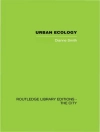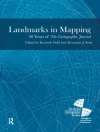This book details a process of creating a long-term sustainability and resilience plan for local governments to use in designing and implementing sustainability and resilience-related policies, initiatives, and programs. It offers guidance and methods in applying sustainability and resilience strategies to attain the prosperity of organizations and communities. The recommendations in this book are based on the author’s years of experience in directing applied resilience and sustainability planning for a local government, and years of research covering diverse aspects of sustainability and resilience from climate change, climate preparedness and readiness, quadruple bottom line strategy, greenhouse gas emission reduction policies, climate adaptation and mitigation to sustainable energy policies and initiatives.
Chapter one defines terms related to sustainability and resilience and addresses how the topics reshape local governments and communities. Chapter two maps out the sustainability and resilience process for organizations and communities, determining the appropriate steps to be taken at each level of sustainability and resilience planning. Chapter three identifies community and organizational level engagement, with internal and external stakeholders, including designs necessary throughout these processes. Chapter four contains measuring, tracking, monitoring and reporting methods using the quadruple bottom line strategy, and developing a sustainability and resilience progress report to ensure accountability, transparency, and good governance. Then, chapter five details the implementation of a sustainability and resilience plan once it is established, describing potential programs and initiatives to achieve sustainable and resilient communities. Chapter six describes the intersection between sustainability and resilience, and chapter seven examines the tools and resources available to create a practical sustainability and resilience plan. Chaptereight concludes the text by addressing the future of sustainability and resilience, and complexities of the modern dynamics of the interconnected systems in cities, counties, and organizations, and recommends how local government administrators in their planning methods and strategies must consider these challenges.
Table des matières
Chapter 1: Reviewing and Defining the Sustainability and Resilience Terms.- Chapter 2: Mapping Out The Sustainability Process for Organizations and Communities.- Chapter 3: Organizational Level and Community Level Engagement and Defining Outcome Champions.- Chapter 4: Measuring, tracking and reporting using sustainability progress reports.- Chapter 5: Implementation of the Sustainability Plan – Putting A Plan to the Test.- Chapter 6: Intersection of Sustainability and Resiliency.- Chapter 7: Tools and Resources Available for Sustainability Planning.- Chapter 8: Conclusion.
A propos de l’auteur
Dr. Haris Alibašić is an Assistant Professor in the Public Administration Program at the University of West Florida. He earned his masters in public administration at Grand Valley State University in 2004, and his Ph.D. in Public Policy and Administration at Walden University in 2014. His areas of expertise include sustainability, climate preparedness and resilience, urban politics, political economy, public administration, ethics, budgeting and finance, and policy. Prior to joining academic, Dr. Alibašić had 22 years of expertise and experience in the public sector, including working for the United Nations Mission and the Office of High Representative in Bosnia and Herzegovina and directing energy, sustainability, and legislative affairs policies and programs for Grand Rapids, Michigan. Dr. Alibašić is a founder of Alibasic & Associates, LLC, a consulting firm offering services in resilience and sustainability planning, strategic planning, and sustainable energy policy. In 2013, Dr. Alibašić advised the Resilient Communities of America on climate resilience and went on to serve as co-chair for the energy sector of the White House Climate Preparedness and Resilience Task Force in 2014. In March 2017, Dr. Alibašić was appointed by the City Council to the City of Pensacola Climate Mitigation and Adaptation Task Force. Dr. Alibašić has written and published extensively on the topics of public administration, administrative evil, sustainability, climate resilience, economic development, and sustainable energy.












